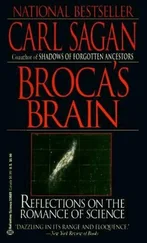Copyright Copyright Dedication Introduction Algorithms to Live By 1 Optimal Stopping When to Stop Looking 2 Explore/Exploit The Latest vs. the Greatest 3 Sorting Making Order 4 Caching Forget About It 5 Scheduling First Things First 6 Bayes’s Rule Predicting the Future 7 Overfitting When to Think Less 8 Relaxation Let It Slide 9 Randomness When to Leave It to Chance 10 Networking How We Connect 11 Game Theory The Minds of Others Conclusion Computational Kindness Notes Bibliography Index Acknowledgments Also by Brian Christian About the Authors About the Publisher
William Collins
An imprint of HarperCollins Publishers
1 London Bridge Street
London SE1 9GF
www.WilliamCollinsBooks.com
This eBook first published in Great Britain by William Collins in 2016
First published in the United States by Henry Holt and Company, LLC in 2016
Copyright © 2016 by Brian Christian and Tom Griffiths
Brian Christian and Tom Griffiths assert the moral right to be identified as the authors of this work
A catalogue record for this book is available from the British Library
Cover design by Jonathan Pelham
All rights reserved under International and Pan-American Copyright Conventions. By payment of the required fees, you have been granted the non-exclusive, non-transferable right to access and read the text of this e-book on screen. No part of this text may be reproduced, transmitted, down-loaded, decompiled, reverse engineered, or stored in or introduced into any information storage and retrieval system, in any form or by any means, whether electronic or mechanical, now known or hereinafter invented, without the express written permission of HarperCollins.
Source ISBN: 9780007547999
Ebook Edition © April 2016 ISBN: 9780007547982
Version: 2018-09-27
Dedication Dedication Introduction Algorithms to Live By 1 Optimal Stopping When to Stop Looking 2 Explore/Exploit The Latest vs. the Greatest 3 Sorting Making Order 4 Caching Forget About It 5 Scheduling First Things First 6 Bayes’s Rule Predicting the Future 7 Overfitting When to Think Less 8 Relaxation Let It Slide 9 Randomness When to Leave It to Chance 10 Networking How We Connect 11 Game Theory The Minds of Others Conclusion Computational Kindness Notes Bibliography Index Acknowledgments Also by Brian Christian About the Authors About the Publisher
For our families
Contents
Cover
Title Page
Copyright Copyright Copyright Dedication Introduction Algorithms to Live By 1 Optimal Stopping When to Stop Looking 2 Explore/Exploit The Latest vs. the Greatest 3 Sorting Making Order 4 Caching Forget About It 5 Scheduling First Things First 6 Bayes’s Rule Predicting the Future 7 Overfitting When to Think Less 8 Relaxation Let It Slide 9 Randomness When to Leave It to Chance 10 Networking How We Connect 11 Game Theory The Minds of Others Conclusion Computational Kindness Notes Bibliography Index Acknowledgments Also by Brian Christian About the Authors About the Publisher William Collins An imprint of HarperCollins Publishers 1 London Bridge Street London SE1 9GF www.WilliamCollinsBooks.com This eBook first published in Great Britain by William Collins in 2016 First published in the United States by Henry Holt and Company, LLC in 2016 Copyright © 2016 by Brian Christian and Tom Griffiths Brian Christian and Tom Griffiths assert the moral right to be identified as the authors of this work A catalogue record for this book is available from the British Library Cover design by Jonathan Pelham All rights reserved under International and Pan-American Copyright Conventions. By payment of the required fees, you have been granted the non-exclusive, non-transferable right to access and read the text of this e-book on screen. No part of this text may be reproduced, transmitted, down-loaded, decompiled, reverse engineered, or stored in or introduced into any information storage and retrieval system, in any form or by any means, whether electronic or mechanical, now known or hereinafter invented, without the express written permission of HarperCollins. Source ISBN: 9780007547999 Ebook Edition © April 2016 ISBN: 9780007547982 Version: 2018-09-27
Dedication Dedication Dedication Introduction Algorithms to Live By 1 Optimal Stopping When to Stop Looking 2 Explore/Exploit The Latest vs. the Greatest 3 Sorting Making Order 4 Caching Forget About It 5 Scheduling First Things First 6 Bayes’s Rule Predicting the Future 7 Overfitting When to Think Less 8 Relaxation Let It Slide 9 Randomness When to Leave It to Chance 10 Networking How We Connect 11 Game Theory The Minds of Others Conclusion Computational Kindness Notes Bibliography Index Acknowledgments Also by Brian Christian About the Authors About the Publisher For our families
Introduction
Algorithms to Live By
1 Optimal Stopping
When to Stop Looking
2 Explore/Exploit
The Latest vs. the Greatest
3 Sorting
Making Order
4 Caching
Forget About It
5 Scheduling
First Things First
6 Bayes’s Rule
Predicting the Future
7 Overfitting
When to Think Less
8 Relaxation
Let It Slide
9 Randomness
When to Leave It to Chance
10 Networking
How We Connect
11 Game Theory
The Minds of Others
Conclusion
Computational Kindness
Notes
Bibliography
Index
Acknowledgments
Also by Brian Christian
About the Authors
About the Publisher
Introduction
Algorithms to Live By
Imagine you’re searching for an apartment in San Francisco—arguably the most harrowing American city in which to do so. The booming tech sector and tight zoning laws limiting new construction have conspired to make the city just as expensive as New York, and by many accounts more competitive. New listings go up and come down within minutes, open houses are mobbed, and often the keys end up in the hands of whoever can physically foist a deposit check on the landlord first.
Such a savage market leaves little room for the kind of fact-finding and deliberation that is theoretically supposed to characterize the doings of the rational consumer. Unlike, say, a mall patron or an online shopper, who can compare options before making a decision, the would-be San Franciscan has to decide instantly either way: you can take the apartment you are currently looking at, forsaking all others, or you can walk away, never to return.
Let’s assume for a moment, for the sake of simplicity, that you care only about maximizing your chance of getting the very best apartment available. Your goal is reducing the twin, Scylla-and-Charybdis regrets of the “one that got away” and the “stone left unturned” to the absolute minimum. You run into a dilemma right off the bat: How are you to know that an apartment is indeed the best unless you have a baseline to judge it by? And how are you to establish that baseline unless you look at (and lose) a number of apartments? The more information you gather, the better you’ll know the right opportunity when you see it—but the more likely you are to have already passed it by.
So what do you do? How do you make an informed decision when the very act of informing it jeopardizes the outcome? It’s a cruel situation, bordering on paradox.
When presented with this kind of problem, most people will intuitively say something to the effect that it requires some sort of balance between looking and leaping—that you must look at enough apartments to establish a standard, then take whatever satisfies the standard you’ve established. This notion of balance is, in fact, precisely correct. What most people don’t say with any certainty is what that balance is. Fortunately, there’s an answer.
Читать дальше







![Владстон Феррейра Фило - Теоретический минимум по Computer Science [Все что нужно программисту и разработчику]](/books/389524/vladston-ferrejra-filo-teoreticheskij-minimum-po-co-thumb.webp)



